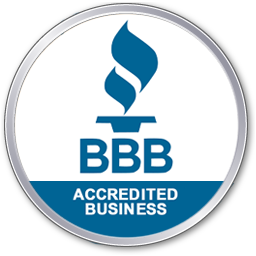Asbestos is a naturally occurring mineral fiber. Asbestos fibers’ resistance to heat, electricity, and corrosion made it a popular construction material for insulation and strengthening cloth, paper, cement, plastic, and other materials.
Types of Asbestos
The Asbestos Hazard Emergency Response Act (AHERA) classifies asbestos into 2 categories:
- Amphibole: Fibers are straight and jagged. Amphibole asbestos has five types:
- Crocidolite
- Amosite
- Anthophyllite
- Tremolite
- Actinolite
- Serpentine: Fibers are curly. Serpentine asbestos only has one recognized type: Chrysotile (also called “white asbestos”).
Where Does Asbestos Come From?
Asbestos minerals come from metamorphic and igneous rocks like:
- Serpentinites
- Altered ultramafic rocks
- Mafic rocks
The coastal states have the highest concentrations of rocks with asbestos minerals, but the mountains of North and South Carolina and east Tennessee also have deposits of asbestos minerals.
In its natural state within the rocks, asbestos doesn’t pose a health concern to people or animals. It starts posing health threats when the rocks are broken and asbestos is mined—disturbing the asbestos fibers and making them airborne.
Asbestos mining became popular in the early 1900s, reaching its height in the 60s and 70s. Once mined, manufacturers processed the mineral to develop asbestos-containing materials—which is classified as any material that contains more than 1% asbestos—that were used throughout homes and businesses.
What Does Asbestos Do?
Asbestos fibers have several qualities that attracted manufacturers, including:
- Abundance. Since asbestos is naturally occurring, it could be mined from mineral deposits around the world.
- Adaptable. Asbestos fibers can be pulled apart (almost like wool) and combined with other materials, making it adaptable to a variety of uses and industries.
- Strength. Asbestos was mixed with a variety of construction materials (concrete, bricks, drywall, etc.) to make them stronger.
- Fire resistance. In addition to making materials stronger, asbestos also made products resistant to heat and fire. It was commonly used in insulation for and flooring near heat-generating appliances (like ranges and furnaces) and in fire-resistant fabrics.
- Insulating properties. Asbestos fibers’ ability to resist heat also made it a good insulator. It was used to insulate attics, walls, and ceilings, ductwork, and hot water pipes.
What is Asbestos Used for?
Asbestos was used (and still be found in) thousands of construction and automotive products, including:
- Insulation for:
- Attics, walls, and ceilings
- Oil and coal furnaces
- Stoves and other heat-producing home appliances
- Hot water and steam pipes
- Ductwork
- Drywall (sheetrock)
- Floor tiles (vinyl, laminate, linoleum, and more)
- Popcorn ceilings
- Roof shingles and siding
- Patching compounds
- Textured paints
- Heat- and fire-resistant fabrics
- Vehicle clutches and brake pads
- Automotive gaskets
You can learn more about where you might find asbestos in our blog.
When Was Asbestos Banned?
In July 1989, the Environmental Protection Agency (EPA) issued the Asbestos Ban and Phase-Out Rule (ABPR) that would have fully banned manufacturing, importing, processing, and distributing asbestos-containing products. The legislation got significant pushback from the asbestos industry lobbyists, claiming the ban would cause job loss and have detrimental effects on the economy.
On August 25, 1989, the legislation successfully banned new uses of asbestos, as well as the following asbestos-containing products:
- Flooring felt
- Rollboard
- Commercial paper
- Corrugated paper
- Specialty paper
While most asbestos-containing materials have been banned, certain products today are still manufactured and sold with asbestos, including:
- Automotive gaskets
- Oilfield brake blocks
- Brake pads
- Other vehicle friction products
Even though asbestos was banned for new uses, many older buildings (particularly those built before 1989) still have asbestos in some form.
You can learn more about the history of asbestos at asbestos.com.
How Is Asbestos Harmful?
Asbestos exposure increases the risk of developing lung disease. Exposure generally only occurs when asbestos-containing materials are disturbed or damaged in some way. Disturbing asbestos-containing materials (during building maintenance, repairs, remodels, and demolitions) causes the thin, microscopic asbestos fibers to become airborne.
Once the asbestos fibers are airborne, thet get inhaled and then settle in the body’s air passages. The body’s natural response is to expel the fibers, but some can get lodged deep in the lining and cause inflammation that leads to serious health problems.
The most common health problems related to asbestos exposure are:
- Lung cancer
- Mesothelioma: A rare form of cancer that’s most commonly found in the lining of the lungs, abdomen, and heart.
- Asbestosis: A chronis, non-cancerous lung condition caused by scar tissue in the lungs.
How Do You Remove Asbestos?
You as a home or business owner shouldn’t try removing asbestos. Given the detrimental health effects asbestos exposure can cause, it’s best to not attempt DIY asbestos removal and leave asbestos abatement (removal) to the professionals. Plus, asbestos testing and abatement has strict rules and regulations to ensure it’s handled and removed safely.
Professional asbestos abatement involves 3 phases:
- Sampling: Collecting dust and material samples of the suspected materials.
- Testing: Analyzing the samples to make sure they actually contain asbestos.
- Abatement: Involves sealing off the impacted area, safely removing the asbestos (using hand tools and wet methods to ensure minimal disruption), properly disposing of the asbestos-containing materials, and cleaning up remaining asbestos particles.
Do You Think Your Building Has Asbestos? Call Alpha Environmental Today.
If you’re concerned your home or business may have asbestos-containing materials, contact a professional to test for asbestos. You can always call our professionals at Alpha Environmental at (503) 292-5346 or contact us online to schedule an asbestos test and get a free asbestos abatement estimate.
Our specialists can answer any questions about what is asbestos. We also have the tools and experience to properly test for asbestos and safely remove it from your home or business. Our advanced testing and abatement process follows federal regulations for asbestos removal, keeping everyone in the area away from exposure.




